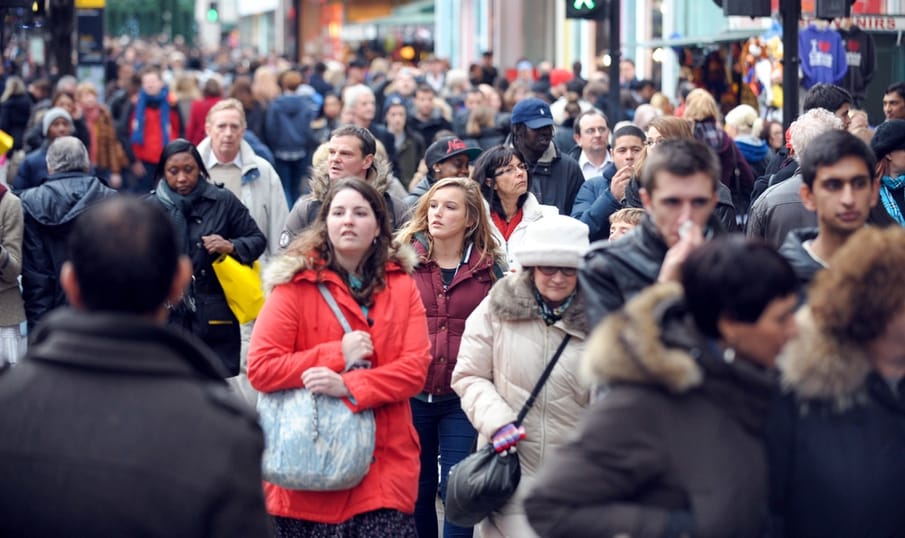From the devastating impact of the cost of living crisis to a degradation in the public’s understanding of mental health, we’re exploring five key areas uncovered by charity Mind
Mental health is something the UK is talking about a lot more now than it did a decade ago. Yet, despite that, widespread stigma, access challenges, and lack of funding still persist – creating barriers to vital support.
“A lack of funding and resources, financial insecurity, racism, discrimination, stigma – they’re all playing a part in the problems many of us are facing. The system is at breaking point and without urgent action things will get worse,” writes Dr Sarah Hughes, CEO of Mind, in the charity’s ‘The Big Mental Health Report 2024’.
One in four people in England will still experience a mental health problem at some point each year. It’s a statistic that has remained static across the years, and one that also stresses how widespread and urgent the issue of mental health identification and support is.
“But to address the mental health crisis, we need to really understand it first,” Dr Hughes continues. “That means having a clear, consistent source of information that lays out what’s happening and where improvements are needed.”
So, what do we know about the UK’s mental health in 2024? We read ‘The Big Mental Health Report 2024’. Here are five key findings you need to know about.
1. Money problems are heavy on our minds
If you have a mental health problem, you will earn an average of £8,400 less each year than someone who does not. It’s a devastating figure at the heart of the issue of money and mental health, but it comes at a time when financial worries are affecting huge waves of people – with 60% saying that the cost of living crisis was affecting their mental wellbeing.
When it comes to identifying risk factors for mental health problems, not having enough money to live is a major one. And it’s not just the adults who have it on their minds. The Children’s Society found that children who were worried about their family’s finances were more likely to be unhappy with multiple aspects of their lives compared to those who didn’t have the same concerns.
2. Access to mental health care is not fit for purpose
Many of us will have an idea of how difficult it can be to access most examples of NHS care, but with there currently being more than two million people on the NHS mental health waiting list (in just England alone), the issue has never been more pressing. And the waiting times are just getting longer. At the same time, acute admissions for mental health have increased, and the average stay in hospital has gotten longer.
More people are now seeking help for their mental health, with a two million increase in the number of referrals to mental health services in England between 2016–17 and 2021–22. At the same time, 19% of posts in the entire mental health workforce were vacant.
3. Young people are being let down
Waiting a long time to get support can often lead to worse mental health – and while one in five children and young people in England have a mental health problem, only a third were able to access treatment in 2023.
In Wales, in 2022–23, 46% of children and young people who received counselling had anxiety as their presenting issue (this was up from 12% in 2015–16). Children with mental health difficulties tend to miss more school in comparison to those who don’t, and – in Wales – 29% of children met the threshold for persistent absences in the 2023–24 school year.
On top of all that, it was found that children in England who had mental health difficulties were significantly more likely to have been bullied online.
4. Stigma and discrimination still persist
Despite awareness campaigns and greater public conversation about mental health, stigma and discrimination still persists as barriers for people living with mental health problems – and there is evidence to suggest that attitudes towards mental health may actually be degrading. In England, it was found that the public’s understanding of mental illness since 2008 was improving, but is now actually beginning to reverse.
Racial injustice is also having a significant impact on people’s mental health. One in three people from racialised communities experience stigma and discrimination from a healthcare professional when trying to get support, and the experiences of racial aggression have been shown to have a profound effect on individuals and whole families.
5. Life with severe mental illness is harder than it should be
People with severe mental illness are at five times the risk of dying before they turn 75 years old. In the north of England, more than 50% of people living with severe mental illness face food poverty at around three times the rate than those in the general population.
They are also more likely to experience poorer physical health – with one review finding that people diagnosed with schizophrenia in the UK had a higher than average chance of long-term physical illnesses by the time they were diagnosed.
Additionally, people with severe mental illness can experience discrimination from healthcare professionals, which can lead them to feel apprehensive about seeking further help.
What comes next?
While the outlook may seem bleak, as Dr Hughes proposed, understanding the full picture is necessary in order to take the next steps. When it comes to what these might be, Mind proposes four changes:
- Making sure people with mental health problems get quality care on time.
- Supporting young people with their mental health.
- Tackling mental health stigma and discrimination.
- Dealing with social factors affecting mental health.
Mind makes the case for radical change at a governmental level. And with support and consistency, this is something we can all join the call for.
Click here to read ‘The Big Mental Health Report 2024’ in full.


Comments